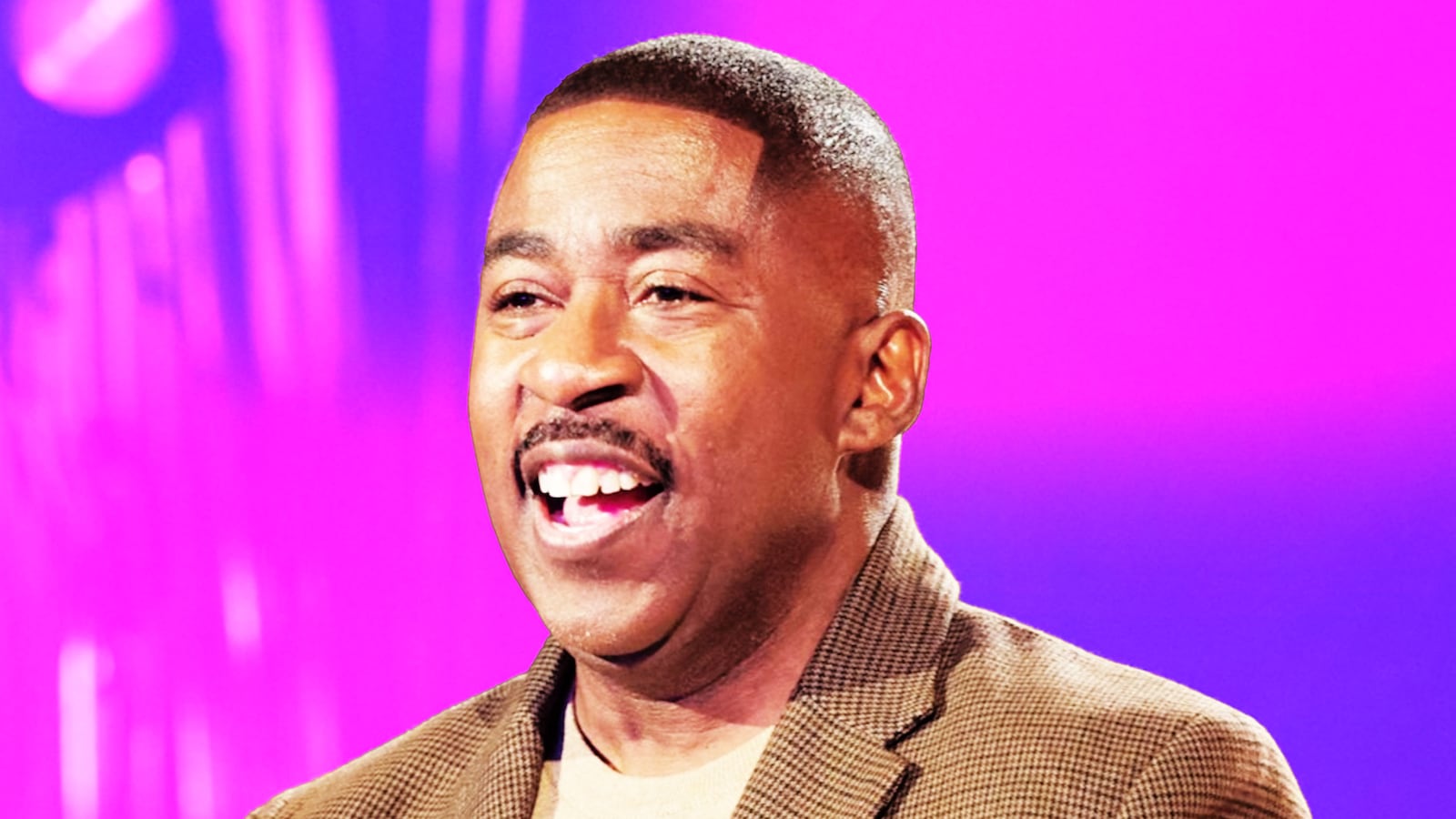As a mainstay at New York’s prestigious Comedy Cellar for many years, Keith Robinson has long been the definition of a comedian’s comedian. But it wasn’t until he suffered two debilitating strokes over the course of four years that he finally landed his first hour-long special on Netflix.
In this episode of The Last Laugh podcast, Robinson talks about how managed to get back on stage so quickly (against medical advice) after his first stroke in 2016 and how he was able to find so many cathartic laughs in what has otherwise been a truly terrifying experience. He also discusses how he felt about the standing ovation that opens his special Different Strokes—especially with so many comedian friends in the room—and looks back at the chaotic early days of his career, including stories about working with Wanda Sykes, Amy Schumer, Chris Rock and more.
When I begin our conversation by asking Robinson how he’s feeling health-wise now that another four years have passed since his second stroke, he smiles and replies, “I’m pretty good.” Then, when I ask if he’s sick of people asking how he’s feeling, he says, “Not really,” before pivoting into a joke: “When I think of somebody holding a door for me, and then having the nerve to say, ‘Take your time’—what else am I going to do?”
Robinson was forced to take his time getting started at the top of his new Netflix special Different Strokes. After walking out on stage with his cane, the comedian gets a standing ovation before he opens his mouth. The audience, which included many of his comedian friends, including Sykes, Schumer, Michael Che, and Colin Quinn, stands up to applaud him just for being there.
“Man, I felt like that president of comedy,” he recalls of that moment. “It felt great, that whole experience was unbelievable. And the fact that my voice held for two shows was like, ‘Oh, wow, I’m doing this.’”
But it’s the jokes, many of which deal directly with his strokes and the toll they’ve taken on his body and voice, that make the special such a revelation. Robinson, who early in his career would be constantly moving on stage, has now been forced to embrace stillness. But even now, he can’t help but work in bits of physical comedy, as he does an extended joke about trying to get across the street before the crosswalk countdown is up.
Robinson says it was important for him to get back on stage “in no time” after his first stroke in 2016, despite a nurse telling them that it probably wasn’t the best idea. And he had no choice but to address what had happened with jokes from the jump. “You have to,” he says, noting that there was no hiding his limp. It was the second stroke two years later that affected his ability to speak clearly.
When I ask how these medical issues have impacted his ability to perform stand-up comedy, Robinson turns to a sports metaphor. “Before the stroke, I was like Patrick Mahomes,” he remarks. “Then, when I had the strokes, I became Peyton Manning, in the pocket. That’s a big difference. It’s made me take my time. I don’t want to waste one joke. So, actually, it may have made me a little better!”
The love that emanates back onto the stage during Different Strokes is born from many years of Robinson serving as a mentor figure for the many young comics who have come up through his home club, the Comedy Cellar, and gone on to become massive stars. That includes someone like Schumer, who executive produced the new special.
“It’s just always been a part of me, seeing younger comics and helping them go through the stuff that I had to go through,” he says, humbly.
So does Robinson ever resent the fact that while some of the people he mentored, like fellow Philly native Kevin Hart, have become among the most successful comedians in the world, it took having two strokes to land his first Netflix special?
Robinson jokes that after his first stroke, he went to Netflix and was told, “Not enough.” Laughing, he adds, “I’m like, ‘Damn… well, what if I get one more?’”
Listen to the episode now and follow The Last Laugh on Apple Podcasts, Spotify, Google, or wherever you get your podcasts to be the first to hear new episodes when they are released every Wednesday.







